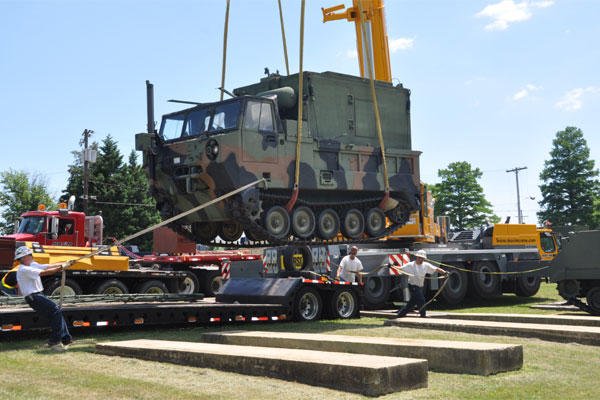The ranking member of the House Armed Services Committee opened the door to shuttering unused military bases and infrastructure that Pentagon leaders have requested but Congress has denied for years.
Rep. Adam Smith, D-Washington, told a group of defense reporters Thursday that members of Congress are warming up to a new round of the Defense Base Realignment and Closure, better known as BRAC.
"An increasing number of people understand that BRAC, this BRAC, would have a small upfront cost and long-term savings," Smith said.
The Pentagon last closed bases in 2005 and has been roundly criticized for the savings that military leaders promised Congress. The process led to battles in Congress as lawmakers fought to protect their local bases.
Following the Iraq and Afghanistan wars, the size of the U.S. military has shrunk and budgets have similarly been cut. Also Thursday, the Army detailed plans to cut 40,000 active-duty soldiers from its end strength over the next two years.
Service leaders have said another BRAC is needed in order to save money and make more efficient use of the military's infrastructure. However, congressmen in both parties have continually questioned the savings and urged the military to reduce its footprint in overseas locations to save money.
Smith explained some members of the House Armed Services Committee are starting to understand that those savings could exist as the military continues to shrink.
"I've had an increasing number of people acknowledge that we need it," he said. "The notion that this was completely unacceptable, which existed about a year ago, is not there anymore."
Budget reductions associated with the Budget Control Act have forced the services to cut jobs at bases across the country. Some members of Congress think a BRAC round could allow the military to save money and avoid some of those cuts, Smith said.
"On BRAC, progress has been made. Well, I don't want to overstate that. Mental progress has been made because the [Association of Defense Communities] was in town a couple weeks ago and they have started to tell their members of Congress to do a BRAC because this death by a thousand cuts is worse," Smith said.
"We have all these facilities open but they're cutting the jobs so we have empty buildings," Smith explained. "Tell us what we're going to have so we can make other arrangements."
A coalition of Washington D.C.-based think tanks issued a letter to Defense Secretary Ash Carter and key members of Congress that supported another round of BRAC. The letter cited annual savings of $4 billion from the 2005 BRAC round. The previous four BRAC rounds are still saving the military $8 billion per year.
The chairman of the House Armed Services Committee, Rep. Mac Thornberry, will need more convincing although Smith said he's starting to reconsider his views on BRAC.
"Chairman Thornberry remains concerned that we haven't broken even from the last BRAC round, that we don't have an accurate assessment of the current excess inventory, that threats continue to rise as force structure is in flux, and that divestments as a result of BRAC tend to be permanent," Claude Chafin, communications director for HASC, said in an e-mail Military.com. "Those factors make the Chairman skeptical that now is the right time to begin a BRAC round."
-- Michael Hoffman can be reached at mike.hoffman@military.com



























